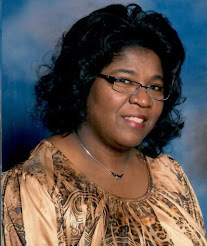Sherri T. Mercer is a writer and student of writing who is passionate about children's literature. Sherri also participates in the Black Creatives Mentorship Program and is a recipient of a BIPOC Scholarship Award to attend the 2022 SCBWI Winter Conference. Here, Sherri answers questions on her current writing projects and future goals and plans.
In what genre(s) do you write?
Currently,
I am writing fictional picture books, both Christian and mainstream. I also
enjoy writing Young Adult Sunday School curricula and devotionals for kids and
adults.
Describe a current project.
I have several picture book
manuscripts at varying levels of completion. Most of my manuscripts address
diversity and inclusion, written with the underrepresented in mind, characters
who are not represented, who are too small or unfairly judged. I hope children
will feel empowered to overcome the barriers and distractions impeding their
success. In addition, I have two manuscripts based on Christian principles—those
in God's creation are enough to overcome what others perceive as hindrances.
What
are your goals for your projects and in general?
I hope my stories are acquired by an agent/editor
this year for traditional publication. And I plan to read 500 picture books by
December 31.
Are you facing any obstacles with your
projects? If so, how are you working through them?
I am not facing any
obstacles, but I am working within the constraints of traditional publishing.
It's a subjective process with many unwritten rules. Publishing traditionally
takes patience, timing, and connecting with the right people. Through classes,
webinars, and conferences, I am honing my skills. Once I complete the tasks I
can control, I'll begin looking for an editor/agent who is receptive to my work
and willing to position it rightly in the industry.
What are your writing
goals overall?
My lifetime writing goals are: to publish children's books
that foster hope and empower, to publish
devotionals to encourage the brokenhearted and discouraged to look beyond their
daily struggles because DAY 41 IS COMING, and to write a novel based on
childhood memories of my father—BIBLICAL TRUTHS FROM A DADDY'S GIRL.
What are
your biggest challenges as a writer?
My biggest challenges as a writer are
letting go of my work and remaining focused. It's easy to get caught up in
honing your skills, lose focus, and not apply the skills you have learned.
There will always be a great webinar, conference, or new way of breaking into
the industry. But, it's essential to get what you need, then write—application
results in an end product. I also struggle with "making my work perfect."
I want to be sure I'm putting out fun and entertaining stories/materials that offer
healing and help build (empowering) and rebuilding (offering hope) the lives of
my readers.
What might you want other writers and/or writing students to
know?
Writing is not easy. It carries with it responsibility. Even the most
humorous and entertaining story should positively impact the reader's life. If
you wish to publish traditionally, invest time learning the industry and becoming
your best writer. Be patient and stay the course. Until your book publishes, do
as our fore-parents did: Tell your story orally. It's more about the message
than the platform.
What else might you want to add?
I am thankful to the
writing community, especially the KidLit community. It's such a giving and
supportive body of people. I am here answering questions on your blog because
of your generosity. Return the generosity shown, reach back, and lift another—wait!
Your day is coming.
Sherri T. Mercer is a retired educator (30+ years) passionate about children's literature. She is especially drawn to stories that inspire hope and give voice to what matters to children. She has a work-for-hire leveled reader that will publish with Benchmark Education and a young adult Sunday School curriculum in September 2022 with the Sunday School Publishing Board—National Baptist Convention, USA, Inc. Sherri is also a wife, mother of adult children, a writer and caregiver who resides in South Fulton, TN. Sherri is grateful for the opportunity to participate in the Black Creatives Mentorship Program. She is honored to work with Natasha Tarpley as a 2022 mentee and to be a recipient of a BIPOC Scholarship Award to attend the SCBWI Winter Conference 2022.
Contact Sherri at sherritmercer@gmail.com, or follow her on Twitter: @sherritmercer and Instagram: @sherritmercer_sincerelyyours.






